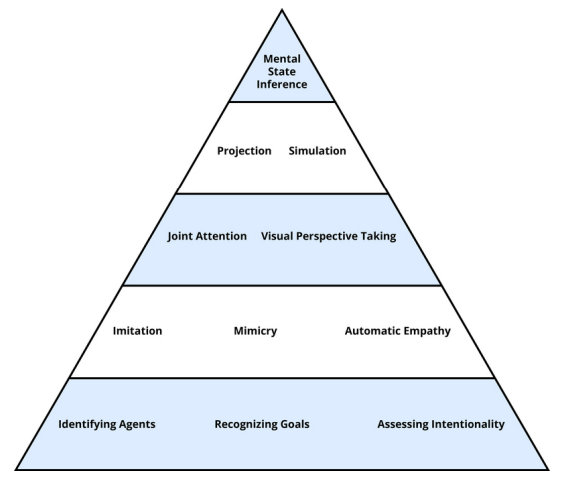Ch.8 - Theory of Mind
1/13
There's no tags or description
Looks like no tags are added yet.
Name | Mastery | Learn | Test | Matching | Spaced |
|---|
No study sessions yet.
14 Terms
Tools for ToM

Automatic empathy
A social perceiver unwittingly taking on the internal state of another person, usually because of mimicking the person’s expressive behavior and thereby feeling the expressed emotion.
False-belief test
An experimental procedure that assesses whether a perceiver recognizes that another person has a false belief—a belief that contradicts reality.
Folk explanations of behavior
People’s natural explanations for why somebody did something, felt something, etc. (differing substantially for unintentional and intentional behaviors).
Intention
An agent’s mental state of committing to perform an action that the agent believes will bring about a desired outcome.
Intentionality
The quality of an agent’s performing a behavior intentionally—that is, with skill and awareness and executing an intention (which is in turn based on a desire and relevant beliefs).
Joint attention
Two people attending to the same object and being aware that they both are attending to it.
Mimicry
Copying others’ behavior, usually without awareness.
Mirror neurons
Neurons identified in monkey brains that fire both when the monkey performs a certain action and when it perceives another agent performing that action.
Projection
A social perceiver’s assumption that the other person wants, knows, or feels the same as the perceiver wants, know, or feels.
Simulation
The process of representing the other person’s mental state.
Synchrony
Two people displaying the same behaviors or having the same internal states (typically because of mutual mimicry)
Theory of mind
The human capacity to understand minds, a capacity that is made up of a collection of concepts (e.g., agent, intentionality) and processes (e.g., goal detection, imitation, empathy, perspective taking).
Visual perspective taking
Can refer to visual perspective taking (perceiving something from another person’s spatial vantage point) or more generally to effortful mental state inference (trying to infer the other person’s thoughts, desires, emotions)